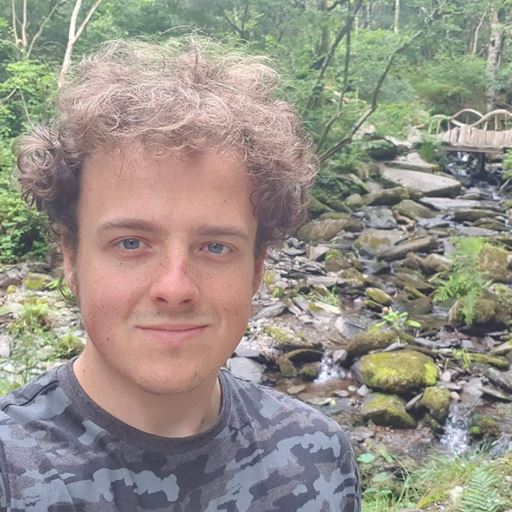Marine biology student plays key role in BBC natural history series
-
Date
Tue 12 Oct 21

Essex marine biology PhD student Jake Smallbone has played a key role in a new BBC natural history series which delves deep into the wildlife off the spectacular Welsh coast.
The four-part BBC Wales series Wonders of the Celtic Deep takes viewers on a journey of discovery in an area which has never previously been explored in such detail and captures an incredible array of species including blue sharks and fin whales, along with seabirds that can “fly” underwater and fish that can breathe on land.
Jake, a PhD student from our School of Life Sciences, worked with the production company One Tribe TV, where he had to develop the stories around the wildlife being filmed, focusing on the accuracy of information by liaising with academics and conservationists.
“Being academically trained it was important for me to be part of this process to avoid misinformation making its way into the series,” explained Jake. “I also provided support in planning the locations and filming timetable as many of the animals and stories we followed were location specific and seasonal.”
However, the experience was not without its challenges - most notably the challenge of working with animals.
“For the most part they would not do what we wanted or didn’t even show up to the sites that we wanted to film in. In these situations, you just need to be patient and plan for these problems to arise with backups,” explained Jake.
During filming on location, Jake had a very hands-on role, supporting the camera operators to find what they were looking out for and to verify what shots were needed.
“The experience was fantastic, difficult but fantastic,” added Jake. ”Sadly COVID 19 hit during the production which caused a lot of issues. But overall, it was an amazing experience. For the most part I was always very busy as work was nonstop to meet very short deadlines.”
The One Tribe TV team has captured some remarkable and exciting new behaviours that have never been filmed in UK waters, such as the courtship rituals of bottle nosed dolphins in Cardigan Bay as they seek a mate using a unique dialect, whistling on a higher frequency than dolphins elsewhere, as well as astonishing footage of basking sharks congregating.
“We were only a small team and I am proud of each and every one of my old colleagues in putting this exceptional piece of work together that does an amazing job of showcasing the beauty of the Welsh coast,” he said.
Jake got involved in the project whilst studying for an MSc in marine biology at Bangor University. He answered a call from the TV production company looking for suitable students from Welsh universities to take part in the series.
He is now an ARIES PhD student at Essex – a development training program for PhD students funded by NERC (Natural Environment Research Council) – where his research is marine microbial ecology with a particular focus on marine oil pollution and oil degrading microorganisms.
“Understanding the microbial side of ecology is very interesting to me as they have such a large impact to all aspects of the marine environment, including the larger more charismatic animals everyone loves to see,” added Jake.
“The most appealing thing about the University of Essex is the sheer diversity of research conducting within the School of Life Sciences and the expertise present within the university itself. The expertise of my supervisors Dr Boyd McKew and Professor Terry McGenity within the field will be integral to my further development during my PhD process.”
Wonders of the Celtic Deep is available to watch on BBC iPlayer.




